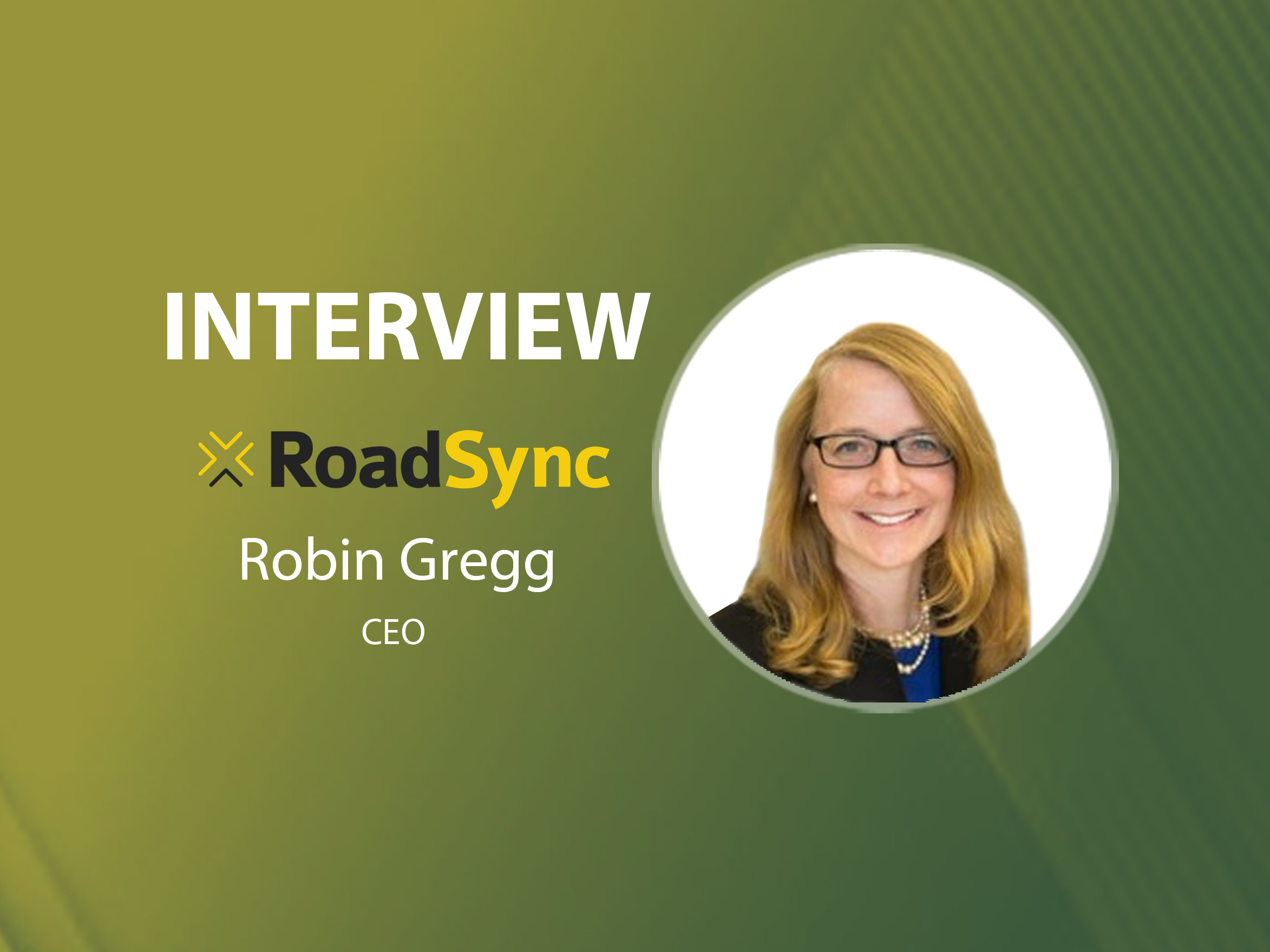When it comes to how the fintech segment has been evolving over the years, solutions are getting more verticalized and products are emerging that are tailored specifically to the needs and industries that they serve feels Robin Gregg, CEO at RoadSync. Catch more of her thoughts on the changing fintech landscape in this interview.
______
Welcome to our interview series Robin, it would be great if you can you tell us a little about yourself!
I came to RoadSync with more than 15 years of experience in the financial services sector, having spent considerable time at FLEETCOR, serving transport-related businesses with solutions for their employees to purchase items like fuel.
During that time, I learned how important payment efficiency and convenience is in the transportation market. You want to keep the drivers on the road. You don’t want them to get stuck somewhere, because they either can’t make a payment or take too long for payments to complete.
Read More: GlobalFintechSeries Interview with Hamed Arbabi, CEO & Founder at VoPay
What’s a typical day at work like for you at RoadSync?
Every day, we focus on serving the wide-range of logistics customers in our network. Everything from an implementation process for a 100-location warehouse group to rolling out our Express Deposit product, which allows RoadSync users to cash out minutes after a transaction is completed. The logistics industry is very fragmented—from enterprises to small ‘mom and pop’ owner-operators, and we’re looking to serve all of their needs.
How have you seen the payments market (global market) and fintech segment evolve in the last few years?
I’ve noticed that solutions are getting more verticalized—products are emerging that are tailored specifically to the needs and industries that they serve. Payments have become part of that—restaurants and retail as an example—and we are doing the same for the logistics, manufacturing and construction industry.
What would you say are the top 5 must-haves for any B2B entity looking to tighten their fintech stack /payments technology stack?
- A shocking percentage of businesses are still conducting payments and processes with paper. That’s step one, automating and digitalizing payments is very important as far as efficiency and cash flow and general protection against theft and fraud.
- The next tier of businesses that we see are still reliant on manual processes but recorded and managed through spreadsheets/excel. While perhaps being more organized, that type of strategy does not help with efficiency and operational capacity.
- Compliance is a major hurdle as well—if you don’t’ have automated processes, there are inevitable errors and complications when the standards change, the increasing number of regulations and need for operational transparency.
- A system, or platform for payments means better standardization, visibility, corporate oversight and payment collection—and provides the historical data that can help with improving best practices and continuous improvement.
What were some of the biggest challenges you’d say affect the development of new fintech technologies (regulations/etc)?
Some clear challenges include:
- Compliance, as mentioned above…
- Ease-of-integration: there’s a gap between the easiest services to implement—services like Square/Stripe—vs. the platforms with the largest breadth of functionality but are more time consuming to implement while also being more expensive.
- Inertia: there’s always pushback from people and organizations handling payments the way they always have because it’s ‘good enough.’ Change management can be the biggest hurdle in the logistics industry.
What are your predictions for this segment in 2020?
I think that the logistics industry will see pressure to automate everything, and move everything to mobile and contactless payments for efficiency and safety—certainly in the wake of the Covid19 pandemic.
What do you think the B2B Fintech market/landscape would look like in the coming years? How will innovations in fintech impact industries (and which).
Fintech will see continued development on purpose-built solutions for various markets, specifically software and solutions focused on payments—lending, back office processes, customer management… more functional technology around payments solutions.
How would you wish for the fintech segment to alleviate the top pain points B2B/Global companies and users face?
Fintech as a whole is still trying to figure out how to get instant payments or at least same day transactions. It’s getting better but the solutions are not quite there and are not affordable for every type of business.
Tag (mention/write about) the one person in the fintech industry whose answers to these questions you would love to read!
Suneera Madhani, Fattmerchant’s Founder & Chief Executive Officer
We’d love to know about some of your future plans for RoadSync.
Our goal is to continue to build out products that serve the customers in our market segment and grow as quickly and efficiently as possible. We’re planning an even broader rollout of fast pay products that help companies with payroll and disbursements to vendors.
Robin is the CEO at RoadSync.


2 comments
Comments are closed.